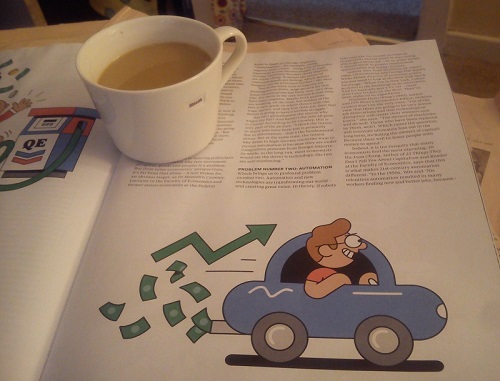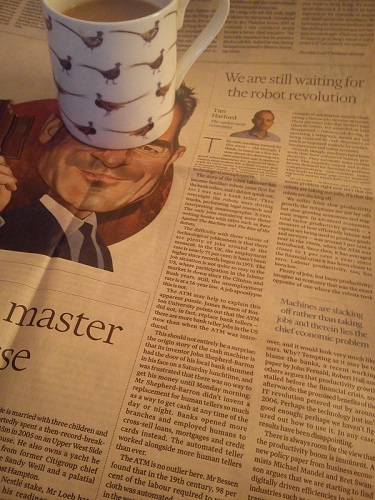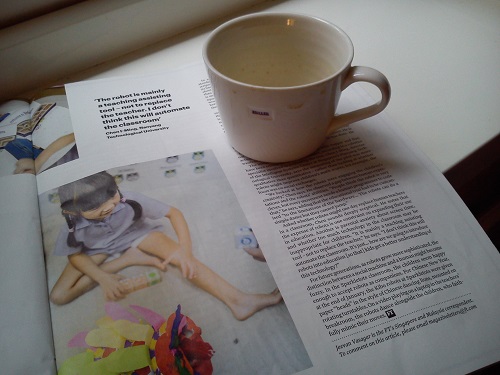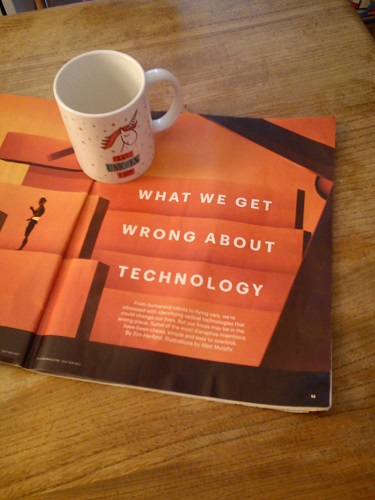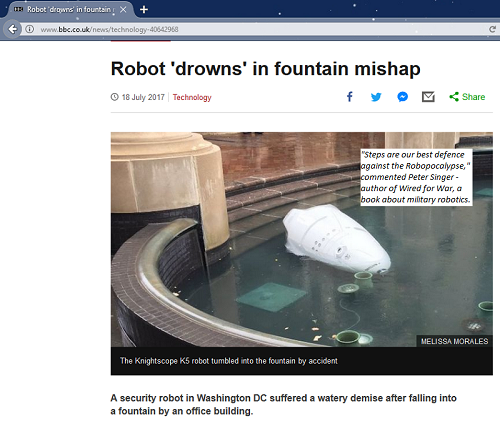As I work through the material for the latest part of the module, I am struck by another assumption being made about digital technologies in the form of OERs.
There is intense focus on
research publication in thinking about using digital technologies for
scholarship. There seems to be little about developing better pedagogy through
social networking online. Academia has traditionally been dominated by focus on
research publication. It seems that this prejudice is continuing in academic
networks on the internet, even though Hurley et al (2010) say, scholars in less competitive institutions are more likely to “embrace these publication outlets”. (This would definitely
include Associate Lecturers at the Open University, who are not even allowed
to name the OU as our institution when publishing research, unless we
have applied for special scholar status, and who are much more focussed on teaching than other British academics.)
All the materials in this current section of the module (The Open University 2017), are concerned with how to disseminate or publicise write-ups of research. Harley et al note that, in spite of being tech-savvy, junior researchers are even more wedded to the peer reviewed journal article, because of their need to progress in careers bench-marked by publication rather than teaching or service. Terras (2012) notes how the downloads and citations of her published work increase when she blogs and tweets about it.
Currently in the UK, we are experiencing the impact of a set of political events on Higher Education so seismic that we could call it a paradigm shift (in the full Kuhnian sense).
- Brexit may cut us off from access to research funding from the European Union, plus cut down our opportunities to develop international collaborative research with European partners.
- The Labour Party’s call to end tuition fees has proved popular with sought-after younger voters and now all parties are trying to emulate it. (Tuition fees are not really the problem, the problem is making students borrow for much higher maintenance costs and bankers charging compound interest on student loans – but universities are getting the flak. Since tuition fees didn’t cover the full cost of delivering a degree in the first place, this political spin on university fees could spell financial disaster for Higher Education in the UK.)

For decades, UK Higher Education institutions have focussed
effort on a series of measures which rewarded not high quality teaching, nor
even high quality research, but highly regarded publication records. High
quality teaching is supported by high quality research, in quite complex ways.
British universities continue to have a deserved high reputation for our
scholarship, attracting international students. However, intellectuals have
never been as highly regarded by the public here as in other European
countries. Research at UK institutions is being undermined by government policy generally, including Brexit. High ranking universities: Oxbridge and the Russell Group, are heavily
invested in research. If UK Higher Education as a whole were to switch focus
onto teaching, they would lose out to institutions like … The Open University. It would not be surprising, therefore, if they tried to put the brakes on such a move.
As a corollary to the low status of teaching in Higher
Education, there is no protocol for acknowledging teaching material. When I
have developed something which I think helps my students, I like to share it
around with my colleagues so I often see my slides popping up in other tutors’
presentations. I borrow other colleagues’ material too. Nobody in academia would
dream of borrowing somebody-else’s writing in an academic paper without
rigorously referencing that work. Yet we have to use each other’s power point slides
and ice-breaker exercises without any protocol as to how to acknowledge the
original work put into these.We often hesitate to 'steal' these useful teaching activities in consequence.
In order to raise the status of teaching in Higher Education, it would be helpful if we could find a means to acknowledge authorship of teaching materials. This might be through using the Creative Commons Licensing system, or just with a copyright notice in the footer of everything we develop.
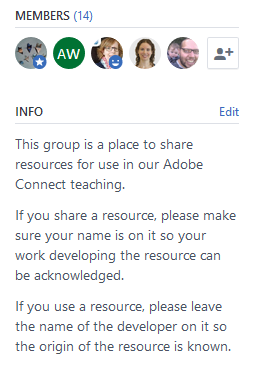
(On a Yammer thread I set up about sharing ideas for teaching with Adobe Connect, I have tried to find a way to acknowledge where resources came from.)
You can get credit for developing innovative teaching – if
you write up about it in a world ranking journal. Of course, there are not very
many journals about teaching in Higher Education which are regarded as world
ranking, because teaching in Higher Education is not regarded as a prestigious
activity.
The way we write about teaching could be re-considered too. Traditionally, all academic articles start with a little overview of relevant literature. Recently I have been trying to turnaround my writing, so that I provide the case study of how I undertook an innovative bit of teaching first (in this way, anyone who wants to replicate it can quickly and easily grasp how it was undertaken), then I write the pedagogic literature account of where my thinking about it comes from at the end of the paper.
Any thoughts?
References:
Harley, D., Acord, S., Earl-Novell, S., Lawrence, S. and King, C. (2010) Assessing the Future Landscape of Scholarly Communication: An Exploration of Faculty Values and Needs in Seven Disciplines, Center for Studies in Higher Education, UC Berkeley, Berkeley [online]. Available at http://escholarship.org/ uc/ cshe_fsc (Accessed 09/10/2017).
The Open University (2017). ‘Section 3.3 Social Networking and Impact’ H818 Unit 3 – Themes and formats. Available at: https://learn2.open.ac.uk/mod/oucontent/view.php?id=1097706§ion=3, (Accessed 09/10/2017).
Terras, M. (2012) ‘The Impact of Social Media on the Dissemination of Research: Results of an Experiment’, Journal of Digital Humanities, vol. 1, no. 4 [online]. Available at http://journalofdigitalhumanities.org/ 1-3/ the-impact-of-social-media-on-the-dissemination-of-research-by-melissa-terras (Accessed 09/10/2017).
